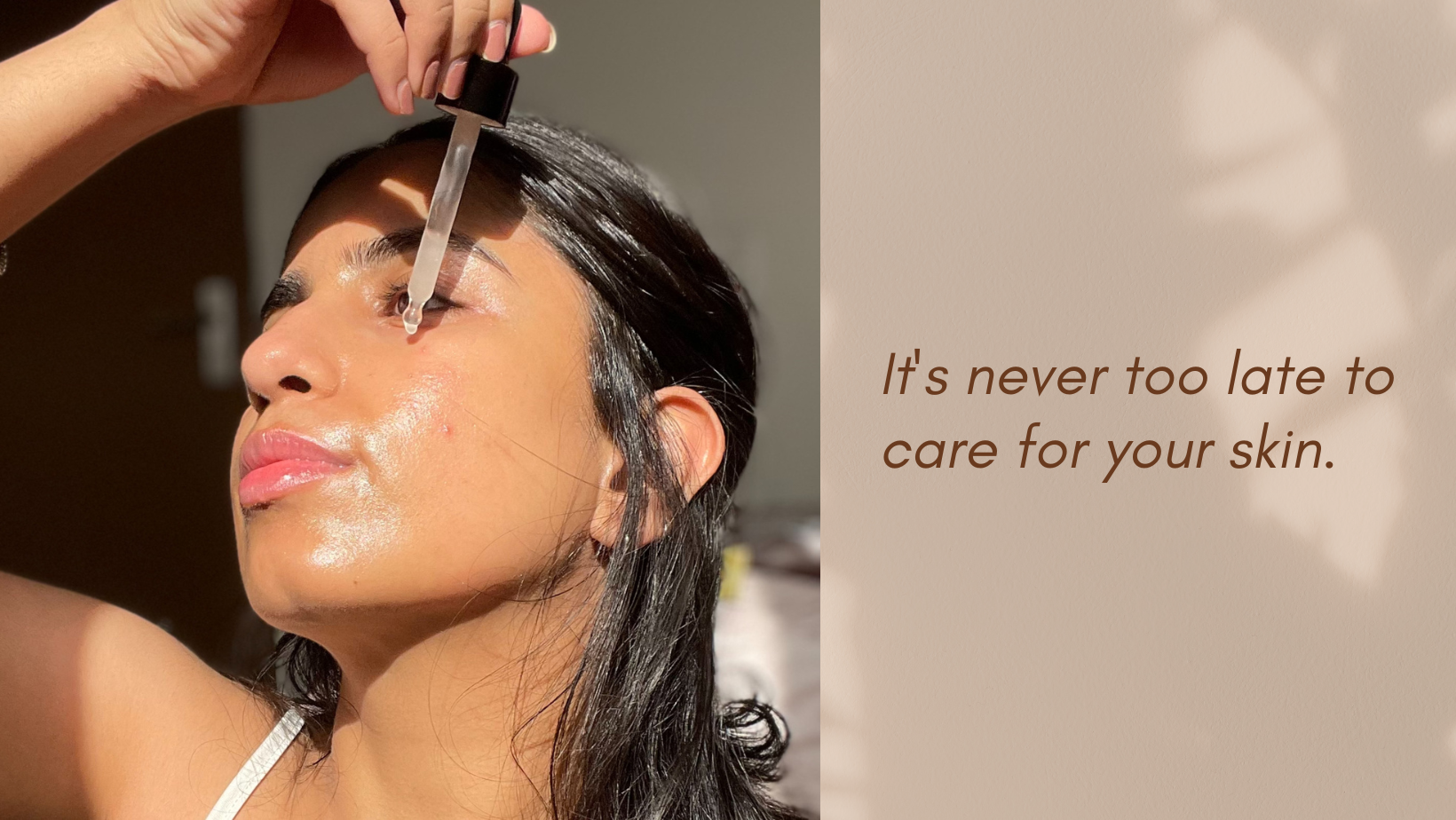
How To Choose The Right Serum For Skin Care?
I want to start today’s blog by addressing that skincare should not stress anyone out. It takes away from the sole purpose of skincare, which is to make us feel at ease. In our complex and fast lives, we all should be able to enjoy simplified skincare. Having said this, the introduction of serums in our skincare regime can really change the game! Now you would ask me what is a serum and how would that help simplify skincare for you? Come, let’s learn!
What is a serum?
A Serum is a skincare product that we should apply after cleansing our face and before moisturizing. The idea is to directly nourish and treat our skin with concentrated and potent formulas crafted using powerful and problem specific ingredients. For example, our Dig Deep Exfoliating Serum is crafted using 2% Salicylic Acid and 4% Azelaic Acid that are prominent in decongesting clogged pores and refining skin texture.
Why do we need to use one?
Serums are made of smaller molecules that have the ability of penetrating deeper and faster in our skin. This makes them a great catalyst for carrying active ingredients and working efficiently on distinct concerns such as fine lines, enlarged pores, blackheads, pigmentation, acne marks and others.
How to choose the right serum for your skin?
It's important to understand the skin concerns that you are looking to target and the knowledge of ingredients that will help in resolving them.
So come, let’s go through some such concerns in detail one by one -
Hydration
If dry or dehydrated skin is your issue, look out for oil based or antioxidant serums. I highly recommend ‘Timeless’ to all my dry skin beauties as it is packed with skin nourishing, hydrating and collagen boosting ingredients like Ferulic Acid, Resveratrol, Lime Caviar and Amino Acids. Some other ingredients like Argan Oil, Rosehip Oil and Vitamin E also boost hydration and repair, renew and protect the skin’s lipid barrier.
Acne & Sebum Control
Ingredients like Niacinamide, Salicylic Acid, Azelaic Acid, Mushroom Enzymes and Caviar Lime are extremely effective when it comes to controlling acne and sebum production. A tip I would like to give here - always follow serums and active treatments designed for acne by a light moisturizer. You can try ‘Margarita’ or ‘Breakout at Bay’ from our collection.
Pigmentation & Dullness
f your skin barrier has gone for a toss, then try to incorporate ingredients like Bio Retinol, Saffron, CoQ10, Mulberry Root Extract and Ectoin in your AM and PM routine. These rich ingredients repair your skin and help achieve an even, glowing and smooth skin. My favourites are ‘Sleepover’ for using right after cleansing my face and ‘Just Me Elixir’ for night time deep repair.
Anti-Ageing and overall health of the skin
For this, I feel it's important to have a simple yet dedicated AM and PM routine. Our skin’s overall health is determined by our diet, daily exercise, lifestyle choices, hydration levels and finally the skincare we use. On the basis of your skin type, opt for a simple cleanse, treat and hydrate regime. Start by using a mild face wash, opt for a serum that has some basic anti-ageing ingredients like Resveratrol, Ferulic Acid, CoQ10, Bio Retinol or Ectoin and follow it up with a moisturizer or a face oil. Always massage your skin in upward strokes and be gentle while applying any product. Give special attention to your under eyes and apply a serum like ‘Wink Wink’ once or twice a day.
Skincare is simple and there is absolutely no need to complicate it! Read your skin and feed it with what it needs. In no time, you’ll have healthy and glowing skin!
Love,
Sunayana
Frequently Asked Question related to Serum for Skin
Is serum good for face everyday?
Yes, using a serum on your face every day can be beneficial. Serums contain concentrated ingredients that can hydrate, nourish, and address specific skin concerns like wrinkles or dullness.
Do I need both serum and moisturizer?
Yes, you can benefit from using both serum and moisturizer. Serums provide targeted treatments with active ingredients, while moisturizers hydrate and seal in moisture.
Can I skip moisturiser and use serum?
Yes, you can use a serum without a moisturizer, but it depends on your skin type and the serum's ingredients.
How many drops of serum should I use?
For most serums, start with 2-3 drops for the face and neck. Adjust as needed based on skin type and product instructions.
Can I apply sunscreen after serum?
Yes, you can apply sunscreen after serum. After allowing the serum to absorb into your skin, apply sunscreen as the final step in your skincare routine to protect your skin from harmful UV rays.
Leave a comment
This site is protected by hCaptcha and the hCaptcha Privacy Policy and Terms of Service apply.